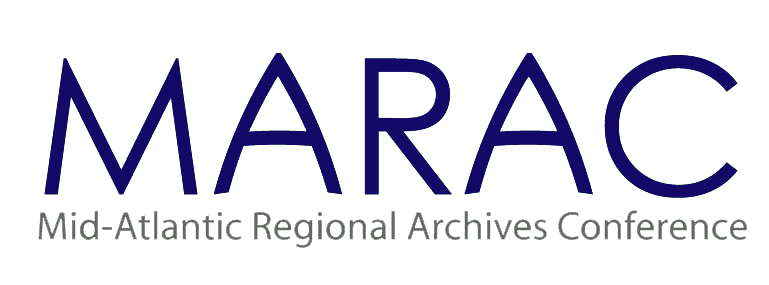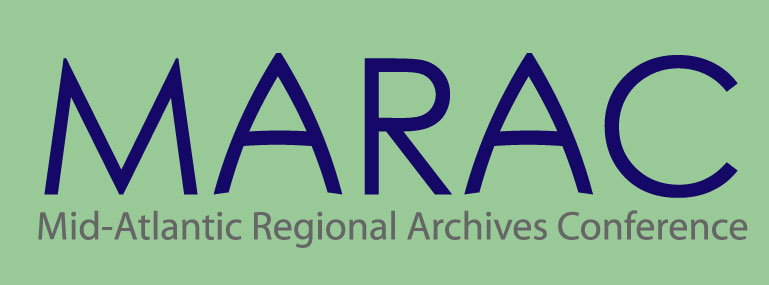MARAC Advocacy: Letters and Resolutions, 20052 September 2005, Joint resolution on hurricane relief JOINT STATEMENT BY THE BOARDS OF Members of COSA, NAGARA, and SAA are overwhelmed by the devastation of Hurricane Katrina. As archivists we are, of course, concerned about the collections. But first and foremost, we are concerned for our friends and colleagues, as we are for all the people whose lives have been affected. It is difficult to comprehend the scale of the damage. How can anyone plan for a disaster that completely destroys the surrounding infrastructure? Those of us in the rest of the country cannot know how to respond. Without reliable communications, we don't know what's needed. But we know that people need food, water, and shelter immediately. The Boards of COSA, NARAGA, SAA, and COSLA are encouraging their members to support all those whose lives have been affected by Katrina by making a contribution to the charity of their choice. For a list of charities, see the Federal Emergency Management Agency's website at http://www.fema.gov/press/2005/katrinadonations.shtm. Many of these charities already have people on the scene and have the experience to distribute help where it's needed most. In the future, we hope to learn more about specific ways we can help our colleagues care for their collections. We will keep you informed. Members who would like to be added to a hurricane-response volunteer list for future effortsmay submit their names using a form on the SAA website (http://www.archivists.org/news/hurricane-volunteer.asp). We will make this list available to archival institutions so that they can contact volunteers directly. At this time, it is impossible to predict when, or if, volunteers might be contacted for help. -- David Carmichael (COSA) 6 May 2005, MARAC petition concerning funding for NHPRC. Geoffrey A. Huth, Chair The Honorable Joseph Knollenberg, Chair The Mid-Atlantic Regional Archives Conference (MARAC), an organization of approximately 1,000 archivists, curators, librarians, and other dedicated professionals working in the field of historical records, is quite concerned about the possibility that the entire budget of the National Archives, National Historical Publications and Records Commission (NHPRC) is in jeopardy. MARAC members live and work from the state of Virginia to the state of New York, and they have an abiding interest in ensuring the preservation of the historical record as an essential element in a modern society. Our members have been dismayed to learn that the modest NHPRC budget request ($8 million in competitive grants, $2 million for program administration) has been recommended for elimination. As an example of our great support for the NHPRC, please find attached the signatures of 190 of our members expressing their distress at the possibility of no funding for the NHPRC. The small budget of the NHPRC has been instrumental in ensuring the preservation of and access to important historical records across the country, including hundreds of grants in the region covered by MARAC (which includes seven states and the District of Columbia). The NHPRC provides services that no other branch of the federal government - not even the National Archives itself - provides. The National Archives focuses its attention on federal records, but the NHPRC ensures that non-federal records (such as those of corporations and individuals) are preserved and made accessible. These records certainly support the writing of history, but ready access to these records also ensures that our democracy and our economy function as they should. The benefits of the NHPRC may be invisible to many Americans, but across the country Americans of all kinds (filmmakers, teachers, journalists, and genealogists, among many others) benefit from the varied projects supported by the NHPRC. I would like to thank you and you Subcommittee for your attention to this important matter, and I urge you to support the continued funding of the National Historical Publications and Records Commission. Sincerely, 25 April 2005, to the House Appropriations Committee concerning funding for NHPRC. Geoffrey A. Huth, Chair PUBLIC TESTIMONY To the House Committee on Appropriations, Subcommittee on Treasury, Transportation, Housing and Urban Development, the Judiciary and District of Columbia On behalf of the Mid-Atlantic Regional Archives Conference (MARAC), an organization of approximately 1,000 archivists, curators, librarians, and other dedicated professionals working in the field of historical records, I am writing to you regarding the budget of the National Archives, National Historical Publications and Records Commission (NHPRC). MARAC members live and work from the state of Virginia to the state of New York, and they have an abiding interest in ensuring the preservation of the historical record as an essential element in a modern society. Our members have been dismayed to learn that the modest NHPRC budget request ($8 million in competitive grants, $2 million for program administration) has been recommended for elimination. The small budget of the NHPRC has been instrumental in ensuring the preservation of and access to important historical records across the country, including hundreds of grants in the region covered by MARAC (which includes seven states and the District of Columbia). The NHPRC is not a backwards-looking institution interested in the pointless pursuit of the past. The NHPRC is an institution dedicated to preparing this nation for the future by supporting projects that create documentary editions of the papers of important Americans (such as Presidents Woodrow Wilson and Dwight David Eisenhower), develop programs that protect the most important records of our American past, and conduct research into how to preserve the vital yet fragile electronic records upon which our nation now depends. The NHPRC provides direct and indirect service to all Americans. Because of the NHPRC, hundreds of thousands of records are now protected and accessible, allowing citizens to find unique information in records and to benefit from easy access to published versions of historical documents. Because of the NHPRC, hundreds of institutions across the country have developed or enhanced historical records programs. Because of the NHPRC, the United States is at the forefront of developing solutions to one of the most harrowing preservation challenges of our times, the preservation of electronic records. Without this last item, the United States might face an untenable future, one in which the important records of its government, businesses, and individuals are lost for all time, one in which democracy is more a slogan than a reality because no one will have access to the records that document the how and why of our collective past. The NHPRC provides services that no other branch of the federal government - not even the National Archives itself - provides. The National Archives focuses its attention on federal records, but the NHPRC ensures that non-federal records (such as those of corporations and individuals) are preserved and made accessible. These records certainly support the writing of history, but ready access to these records also ensures that our democracy and our economy function as they should. The benefits of the NHPRC may be invisible to many Americans, but across the country Americans of all kinds (filmmakers, teachers, journalists, and genealogists, among many others) benefit from the varied projects supported by the NHPRC. The modest yet bracing support that the NHPRC grants provide our citizens is only half the story. NHPRC funding is a lever that frees other money to support the NHPRC's important work. On average, non-federal support for NHPRC projects in the form of in-kind support and matching funds averages almost 50%. The loss of the NHPRC will, thus, be much larger than we might imagine. Having been associated with or benefited from a number of NHPRC projects myself, I have seen the advantages of the NHPRC's grants program first hand. The New York State Archives received a grant to document the World Trade Center attacks and ensure for all time that the full story of that terrible day remains clear in our minds. The Research Foundation of the State University of New York has studied how to ensure the authenticity of electronic records so that we can be confident that the electronic records we use in the future are true and valid records of the past. Syracuse University developed a useful model for managing the sometimes transitory records that reside on websites. The Trustees of Columbia University are developing standards for managing electronic geospatial records, the preservation of which is a huge problem for both government agencies and business. All of these projects have benefited the members of MARAC directly and indirectly, and all of these projects will ensure that our country continues into the future as a great democracy. I would like to thank the members of the Subcommittee for their attention to this important matter, and I urge you to support the continued funding of the National Historical Publications and Records Commission. Sincerely, 16 February 2005, concerning consolidating the collections of the Winterthur Library at the Hagley Library. 8233 Old Courthouse Road On behalf of the Mid-Atlantic Regional Archives Conference (MARAC), an organization of approximately 1,000 archivists, curators, librarians, and other dedicated professionals working in the field of historical records, I am writing to you regarding the discussions currently underway in your institutions about collaborative programming, most especially the possibility of consolidating the collections of the Winterthur Library at the Hagley Library. We applaud the collaborative efforts of the Winterthur and Hagley library staffs, even though your collecting missions are so disparate. However, because of the unique collection missions of each library, as archivists and curators, MARAC would be extremely distressed to see the removal of documentation from the Winterthur estate that directly supports study of the development of the estate and the museum. Besides alerting researchers to the collections at Winterthur, many of us have visited and used the collections ourselves. We understand the special relationship that exists between the estate itself, the museum collections, and the documentary collections in the library, which generate wonderful opportunities for integrated study for many Winterthur researchers. These opportunities would be greatly reduced should the Winterthur Library collections be moved to Hagley, a move that does not serve the collections' users to the fullest extent possible. We also can envision difficulties with future collection development should such a consolidation take place. Naturally, MARAC members would also be concerned if such a consolidation did take place, the special understanding of these documentary collections that have been developed by the Winterthur Library staff would be diluted, or lost over the years with staff turnover. We are also concerned for the documents themselves, and understand there are questions regarding environmental controls at Hagley compared to those at Winterthur, which recently has upgraded its HVAC systems. MARAC hopes that the unparalleled assets of, and experience at, Winterthur will remain intact for the benefit researchers, as well as the estate itself. We would be happy to provide additional feedback at your request. Yours sincerely, |

